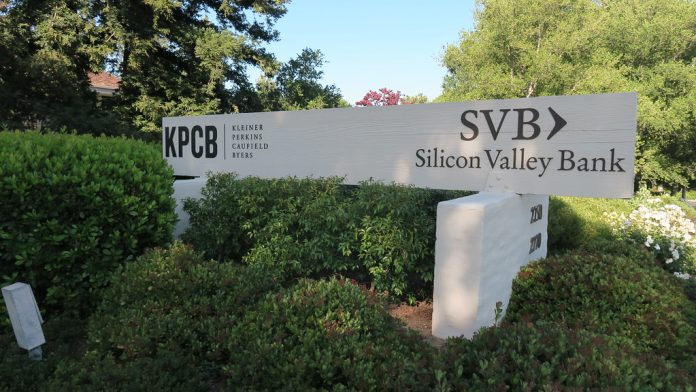Nick Hart, Socialist Party national committee
When the president has to go on TV to reassure the public that they’ll still be able to withdraw their own money from a bank, it’s a sign that something has gone badly wrong. So what happened?
Silicon Valley Bank (SVB) held much of its assets in the form of US government bonds – packages of public debt normally seen as a secure way for banks to park customers’ money. The bank collapsed when the cash value of the bonds it held declined against the backdrop of rising interest rates.
$42 billion
It found itself unable to sell enough to be certain of paying depositors their money in full, on demand. After publicly acknowledging this, $42 billion was withdrawn from the bank in one day.
To prevent a further stampede of account holders running to take out their money from SVB, the US government said it would guarantee that all accounts in the now-liquidated bank would be paid in full. The bank’s British arm was bought for £1 by giant HSBC, in a sale facilitated by the Bank of England.
Though a domino effect of panic spreading through the banking system and wider economy along the lines of the 2008 crisis seems to have been avoided, for now, the collapse of SVB is a symptom of a highly jittery capitalist financial system.
SVB was a ‘niche’ bank, concentrated in limited sectors. But, there’s plenty of money sloshing around other parts of the capitalist system.
Unite the Union has found that the profits of Britain’s biggest companies almost doubled during the pandemic. But with capitalist governments attempting to bring inflation down by raising interest rates, there will be more unintended consequences like with SVB – and not just among the speculators of Wall Street and the City of London.
Mortgages and debt
Already working-class people in Britain and elsewhere are facing greatly increased mortgage repayments, and interest on other personal debt – such as credit cards – normally used to smooth out the effect of low wages and increasing living costs. This further takes money out of the ‘real’ economy, storing up problems for the capitalists, as demand for their products ebbs away.
The challenge to the workers’ movement is to ensure that it’s not our class that pays the price for the capitalists’ inability to manage their own system. The banks and big business should be nationalised – under the democratic control of the working class – so we can plan the economy to meet the needs of all.








